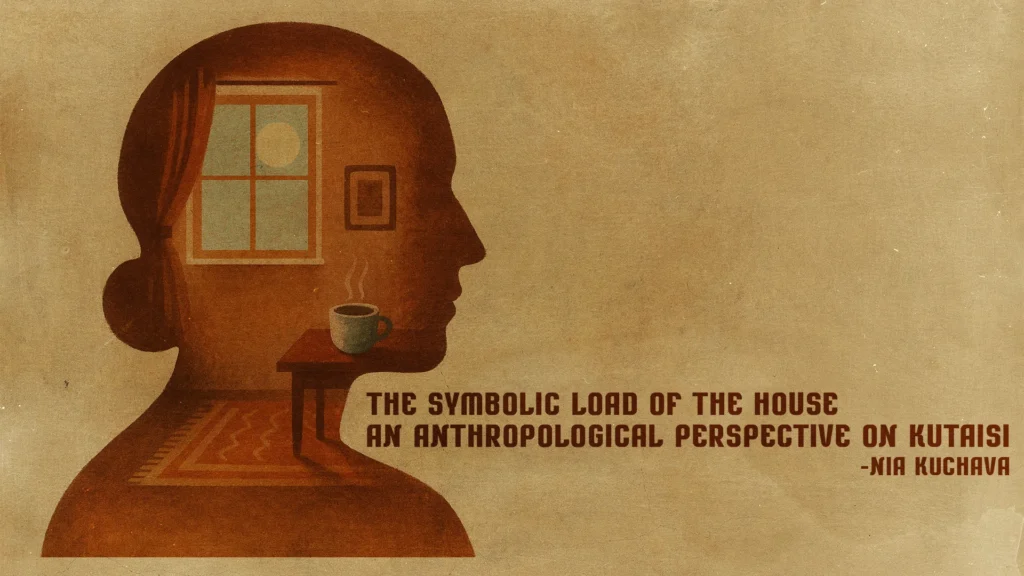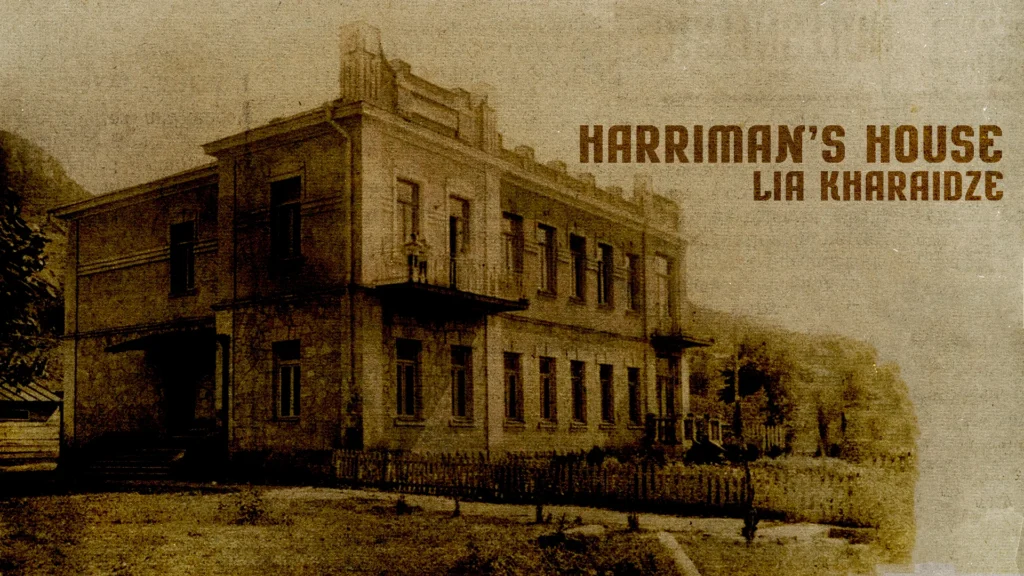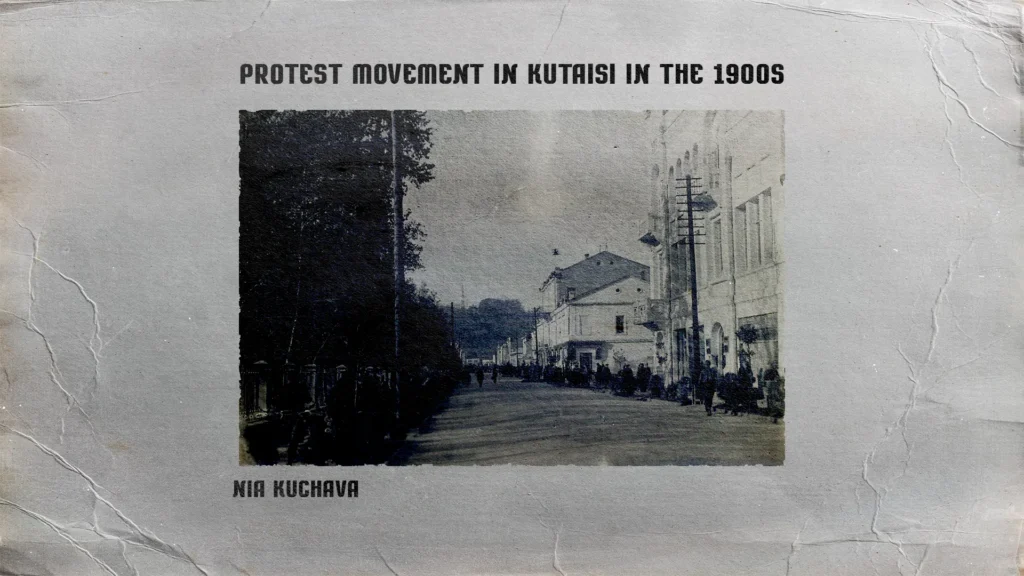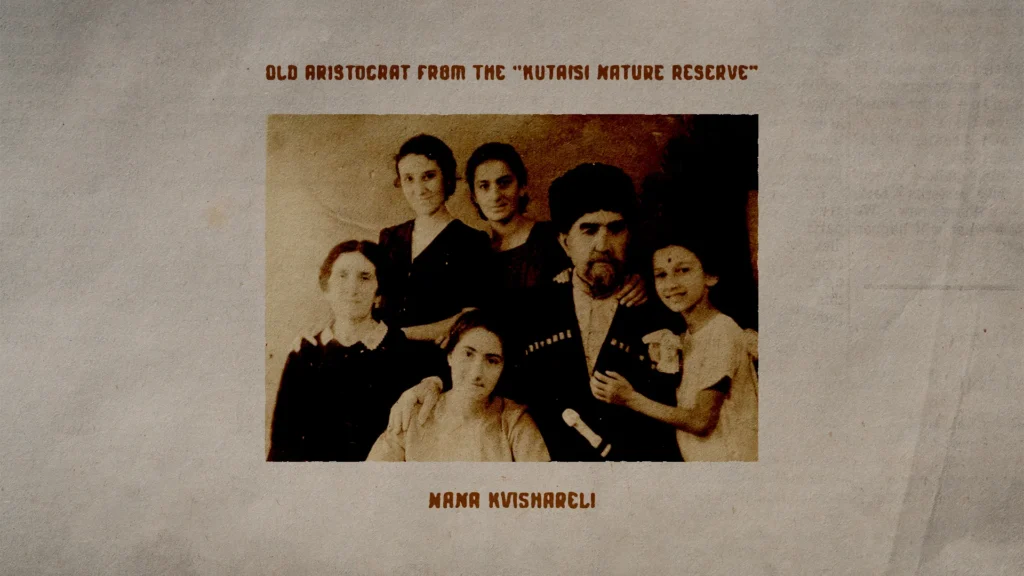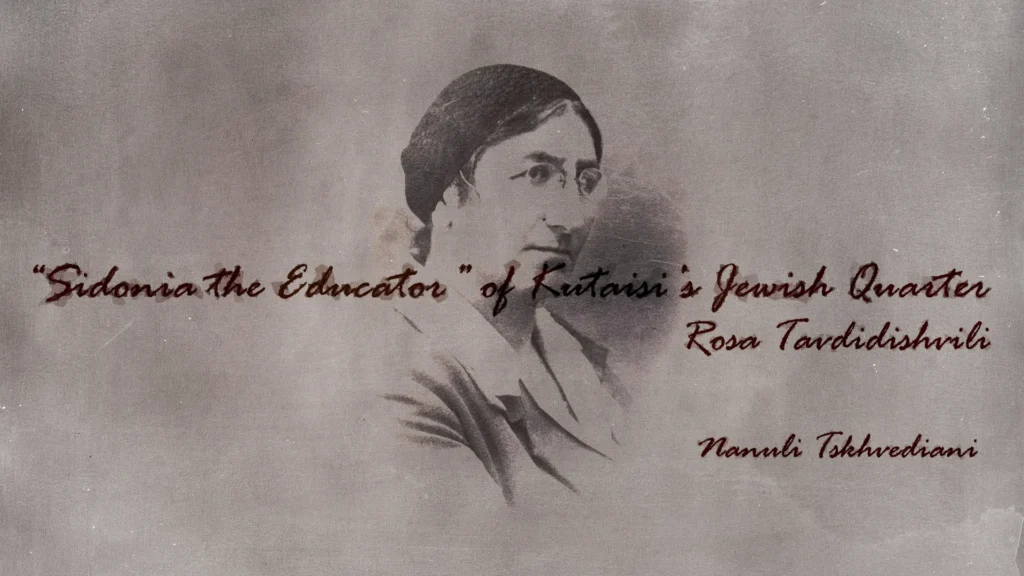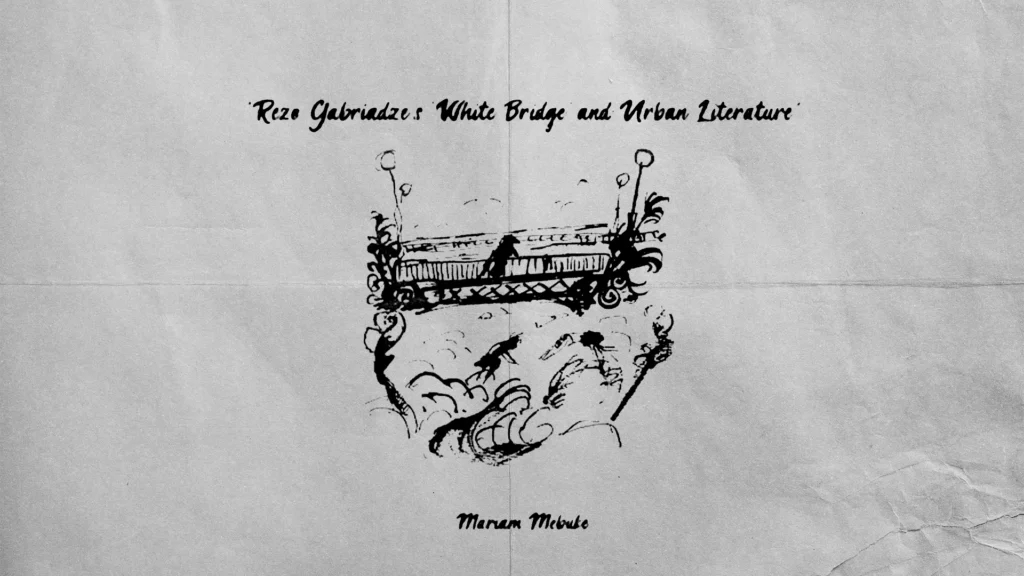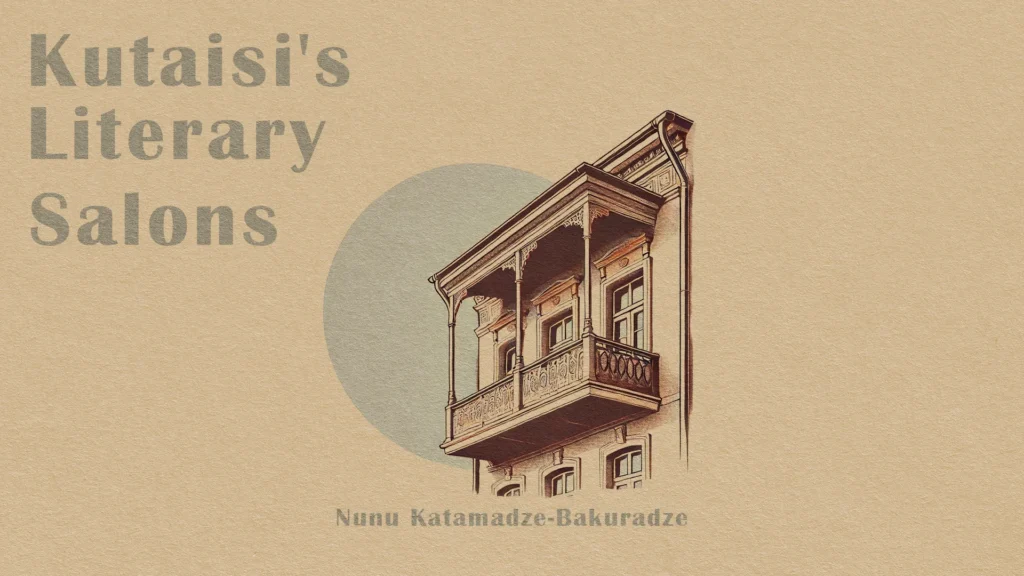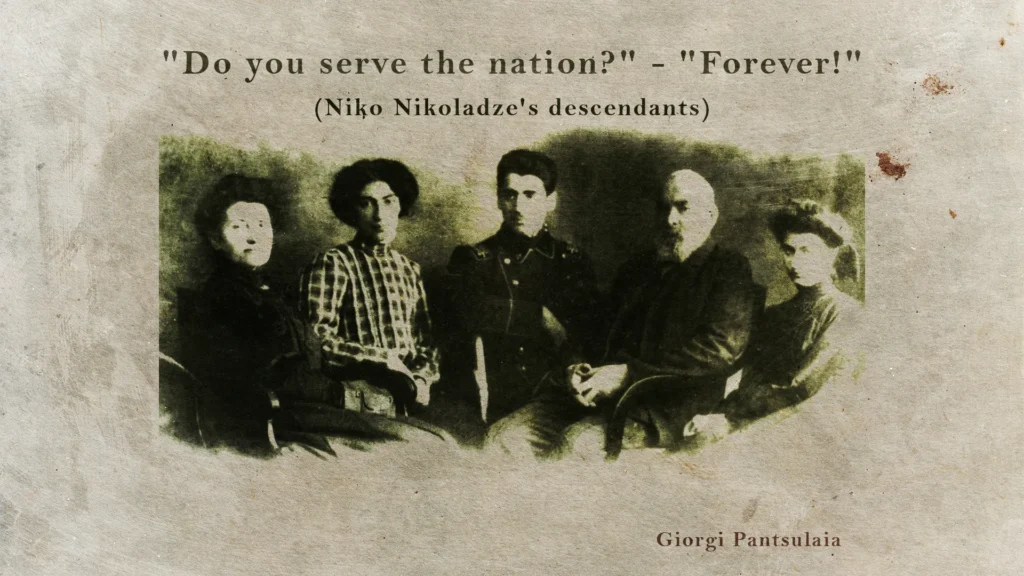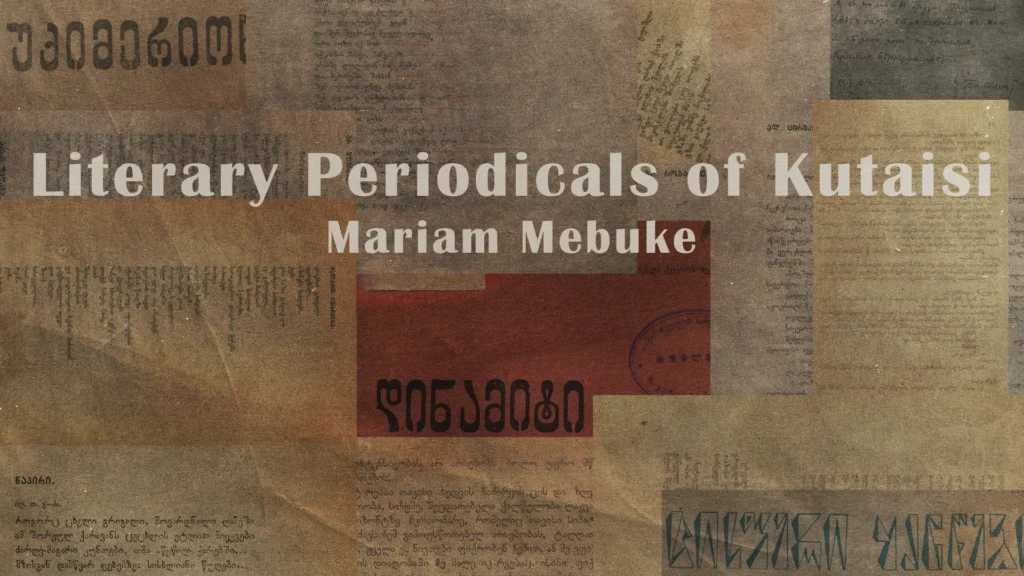Kultura! – Article Archive
The Symbolic Load of the House – An Anthropological Perspective on Kutaisi
For social and cultural anthropology, the transformation of a dwelling into a home—when walls transcend their utilitarian function and acquire deeper symbolic meaning—is a fascinating subject. The question is not merely about the techniques and materials used in construction but about the profound shift that occurs when a shelter becomes imbued with life and meaning. This article explores the symbolic significance of the house, its social, cultural, and individual dimensions, and how urban spaces, like the city of Kutaisi, can serve as extensions of the home—an expanded, collective variation of personal space.
Harriman’s House
At the beginning of the last century, Chiatura was a small village with only a fewhouseholds. It consisted mainly of wooden barracks, taverns, and blacksmith shopsscattered along both sides of the Kvirila River. The village also had a railway station anda market. The area where today’s densely populated Agmashenebeli Street is locatedwas completely uninhabited at the time. It’s hard to imagine now, but this elevated areawas once covered with an oak forest, with a cemetery to the south. On the plain,stretching all the way to the railway station, a walnut tree alley ran along the street thatnow bears the name of I. Chavchavadze.
Protest Movement in Kutaisi in the 1900s
The 1900s were a crucial period for the Caucasus, as it was during this time that the region experienced significant political and ideological shifts. Protest movements emerged, and the Caucasian countries, which were part of the Russian Empire, began to reimagine and redefine their identities. Georgia was no exception to these changes. One of the most pressing issues for nationalism during this period was the understanding of heritage, place, and territory, and how these elements shaped the construction of national identity. It is fascinating to explore how Georgian thought responded to these transformations and the ideas that arose in the context of protest. Kutaisi was one of the most important centers for these developments.
Old Aristocrat from the “Kutaisi Nature Reserve” – Pipinia Mikeladze
“We should declare Kutaisi a nature reserve, where only educated, polite, patriotic Georgians will have the right to enter without a permit.” This phrase was written by the famous Kutaisi scribe, folklorist, and public figure Pipinia Mikeladze, who was also well-known for his rare sense of humor. His jokes have survived to this day—sometimes in their original form, other times in modified versions, though many people do not realize that these sayings actually belong to Pipinia.
Rosa Tavdidishvili – “Sidonia the Educator” of Kutaisi’s Jewish Quarter
For a Jewish woman raised in a traditional family, walking from street to street, from family to family, or from one congregation to another in the 1930s and 1940s, pencil and notebook in hand, must have been incredibly challenging. Rosa Khananashvili was that determined and enthusiastic woman who broke barriers to take the first step in ethnographic research about the lives of Georgian (Kutaisi) Jews. Her remarkable talent and abilities helped her achieve the seemingly impossible: creating a unique work titled Ethnographic Essay on the Ancient Life of the Jews of Kutaisi.
“Rezo Gabriadze’s ‘White Bridge’ and Urban Literature”
Cities in fiction reflect a range of associations, capturing the personal, cultural, and historical dimensions that define each era. Just as Maupassant’s Paris in the 19th century requires context to fully understand the significance of a woman smiling from her balcony, so does Rezo Gabriadze’s 20th-century Kutaisi. In his story “White Bridge,” Gabriadze illuminates the unique, often humorous, character of his hometown, blending its historical, social, and emotional contours into a tale that embodies the warmth and complexities of Kutaisi life.
Peasant Uprisings of Imereti and Samegrelo in the 19th Century
Georgian cultural history contains countless stories—some told openly, others whispered; some recorded, others left incomplete. Many of these stories find their legitimacy in words, sentences, and written records. But what happens to those stories that remain hidden, denied the honor of remembrance? Despite their intrinsic value and the suffering of those involved, these narratives often fade into obscurity, buried in the repressed corners of collective memory.
Kutaisi’s Literary Salons
In an era when Georgia lacked theaters, magazines, newspapers, and formal cultural institutions, literary gatherings held within private homes nurtured and advanced the nation’s intellectual and cultural life. Across Europe and Russia, family salons became cultural staples, serving as crucibles for ideas and artistic exchange.
“Do you serve the nation?” – “Forever!” (Niko Nikoladze’s descendants)
Sometimes, the children of great people remain unnoticed by society and history, as if they cannot escape their parent’s shadow. In this case, the opposite happened. The lives and achievements of Niko Nikoladze’s descendants became a continuation of his immeasurable contribution. The work of Niko’s son, Giorgi Nikoladze, is no less significant than his father’s.
Literary Periodicals of Kutaisi
The creative legacy of Kutaisi in Georgian literature finds its roots with the first Georgian Symbolist poets and prose writers, who established a creative association and produced the magazine Tsisperi Kancebi (Blue Horns) in 1916, with only two issues published. This effort marked the beginning of a vibrant, if at times short-lived, period of literary expression, with various magazines and newspapers emerging over the years to document and influence the literary movements and creative energies of the time.
